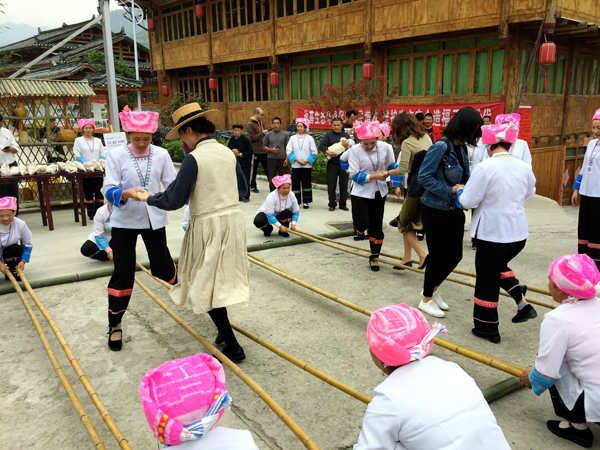Airbnb lands in rural China
By Yang Feiyue | China Daily | Updated: 2018-11-27 07:42

The company is working to use its global network, experience and tourism philosophy to respond to the Chinese government's call for rural development, Peng adds.
Airbnb has sent experienced owners of homestay to provide face-to-face training for Jinjiang's farmers.
It has taught local young people how to interact with guests and perform such standard services as cooking, making beds and cleaning.
A rural homestay-management instruction manual has been delivered to local villagers to help them develop sustainable tourism.
Airbnb will continue to work with Guilin to tap local resources and promote tourism to reduce poverty, Peng says.
Around 1,400 county-level administrations nationwide had Airbnb homestays as of last month, the company says.
Those homestays have so far received over 1 million guests and helped rural homeowners generate more than 260 million yuan ($37.51 million) in revenue.
The number of Airbnb's village rooms has maintained 257 percent year-on-year growth as of October, while that of village hosts and guests have both doubled.
"This project brings people living in poverty into Airbnb's global network," says Xi Jianchao, a researcher from the Chinese Academy of Sciences' Institute of Geographic Sciences and Natural Resources.
"It changes poor people's production modes and lifestyles through education and training."
Head of the World Tourism Alliance Liu Shijun says the program lowers the threshold for tourism-business entry and offers job opportunities for local youth and women.
"It'll play a bigger role in rural revitalization and poverty alleviation," Liu says.
Before the Airbnb program, Liao and his family had to rely on his salary, fruit orchards and the meager income from his restaurant in the village.
His household earned 60,000 to 80,000 yuan a year.
Liao says his future income will be at least as much as he earns now.
He plans to upgrade his agritainment destination and remodel one of his houses the way Airbnb did with the first two houses developed as homestays.
"We'll also take advantage of our natural environment to grow quality passion fruit and gourds that visitors can pick themselves," he says.
Contact the writer at yangfeiyue@chinadaily.com.cn
























